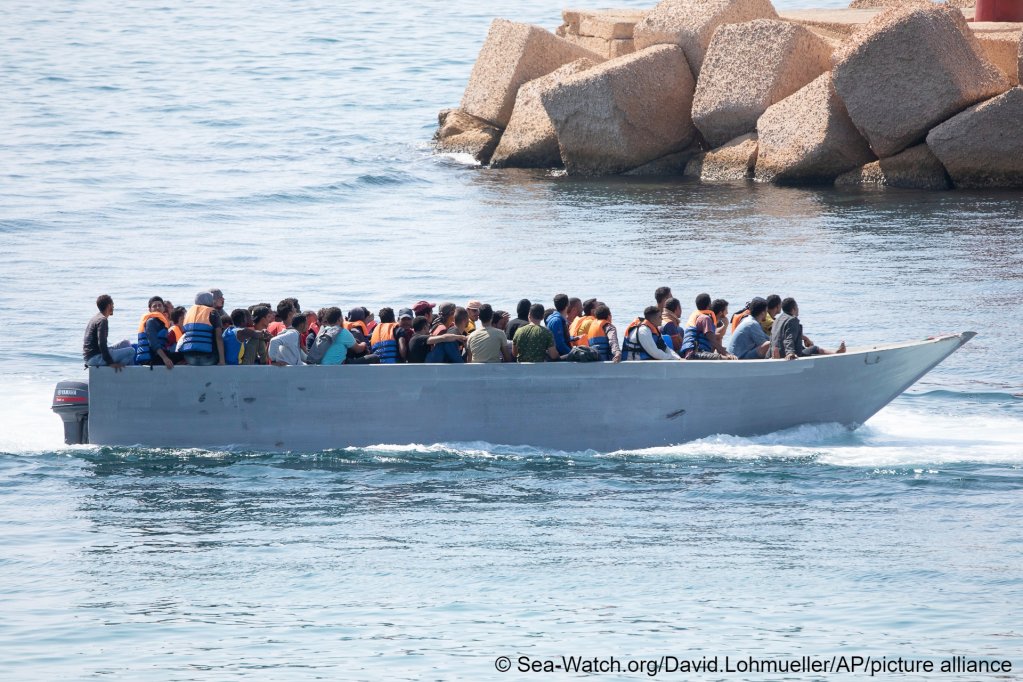The verdict was the culmination of a dramatic incident that started in 2019 when Matteo Salvini, then the country’s Interior Minister, blocked an Open Arms humanitarian vessel from docking in Italy for nearly three weeks.
An Italian court on Friday acquitted Deputy Prime Minister Matteo Salvini of charges of kidnapping and dereliction of duty in relation to his blocking migrants aboard a rescue ship from docking in Italy.
A court in Palermo, Sicily, rejected prosecutors' bid for a six-year jail term and banning Salvini from holding government office.
The verdict was the culmination of a saga that had started in 2019 when Salvini, then the country's Interior Minister under a previous government, blocked a humanitarian vessel from docking in Italy for nearly three weeks before his decision was overturned by a court order.
19 days of misery
The Spain-based charity Open Arms had reportedly first come to the aid of a boat carrying more than 50 people but was refused entry into Italian waters or transit through them.
While waiting in international waters off the coast of Libya, Open Arms carried out two more rescue missions, bringing the total number of people on board to an estimated 160 migrants.
Open Arms and other rights organizations slammed Salvini's blockade, accusing him of imprisoning migrants at sea and endangering lives by forcing them to endure deteriorating conditions on board.
Some of the passengers reportedly had to be airlifted off the Open Arms vessel because of their dire medical condition at the time.
After a greuling 19 days, Open Arms was allowed to dock and disembark its passengers in Lampedusa.
Read AlsoOpen Arms blockade: How Italy's Deputy PM came to be charged with migrant kidnapping
Italy: Testing ground for extreme anti-migrant policies
Salvini's trial highlighted deep divisions within Italian society and politics over the thorny subject of migration. Salvini has both received support and suffered vilification for his brazen anti-migrant stance from different political camps.
In a statement released by her office, Prime Minister Giorgia Meloni celebrated Salvini's acquittal, which she described as "a judgment that shows how unfounded and surreal the accusations against him were."
Salvini, who is serving as both deputy prime minister and transport and infrastructure minister under Meloni's administration, is also the head of the Lega (League) right wing political party.
In October, leaders and members of the EU Parliament's far-right nationalist Patriots for Europe group threw their support behind Salvini at the annual gathering of Lega. Members reportedly posed with Salvini under the slogan "defending borders is not a crime."
Litmus test for Albania policy
The court's decision comes in the wake of continued tensions between the government and the judiciary over Italy's deportation of asylum seekers to migrant reception centers in Albania.
A recent court decision questioned the legality of the government plan to relocate asylum seekers to Albania for processing, leaving the whole scheme in a legal limbo.
Earlier this month, Meloni said in an interview with the Italian network Rete 4 that the "Albanian scheme has to work; I will do whatever I have to do to make it work.
Read AlsoNGOs say Italy-Albania deal 'violates code of medical ethics and human rights'
Broader Implications for prosecutors, too
The Salivini trial also moved the spotlight on the treatment of public prosecutors in such high-profile cases. Italian news agency ANSA reported that the prosecuting team Marzia Sabella, Gery Ferrara and Giorgia Righi had faced a barrage of threats and insults during the proceedings.
The trio was reportedly barraged with anonymous death threats and sexist slurs online, which also extended beyond the digital world.
Anonymous letters were reportedly sent to their offices to that effect; family members were also reportedly not spared from the onslaught of online abuse against the prosecutors.
Security detail had to be provided for the prosecutors after they had received the threats.

Italy has long been a frontline destination for people crossing the Mediterranean Sea by irregular means, with more than a million arrivals over the past decade on Italian shores.
Figures recorded by the United Nations Higher Commissioner for Refugees (UNHCR) indicated a total of 67,477 arrivals by sea to Italy in 2024, drastically dropping from figures in 2023 and 2022 which stood at 157,651 and 105,131, respectively.
However, this overall influx over the past ten years has meanwhile fueled the rise of far-right parties in the southern European country, turning the issue of curbing irregular migration into a centerpiece of political campaigns.
In a country where migration remains a deeply divisive issue, the trial of one of the biggest figureheads rallying against migrants may have ended, but the debate over its consequences is far from over.
